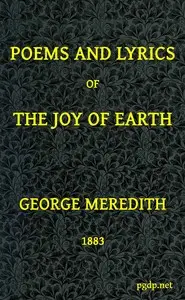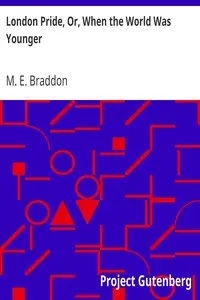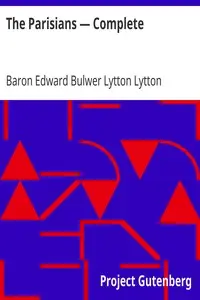"Vittoria — Volume 8" by George Meredith is a fictional novel that explores the chaotic intersection of love, political maneuvering, and treachery amidst the roiling conflict in 19th century Italy. Wilfrid, along with characters like Weisspriess and Vittoria, struggle with complicated emotions and relationships during wartime and social upheaval. The novel opens with Weisspriess and Wilfrid traveling to Milan while facing their parts in the ongoing conflict and their longing to escape to Hungary. Their conversations showcase the weight of responsibility and the pain of unrequited love, especially as Wilfrid wrestles with Vittoria’s marriage. Moreover, the narrative pulls us into a secret meeting involving Wilfrid, a young Hungarian officer, and an important woman, adding layers of suspense and hazard to the developing story as the characters face desires and dangers while setting up a story about fidelity, identity, and the personal sacrifices required during political involvement.

Vittoria — Volume 8
By George Meredith
Amidst war-torn Italy, a tangled web of love, betrayal, and political schemes threatens to consume those caught in its treacherous threads.
Summary
About the AuthorGeorge Meredith was an English novelist and poet of the Victorian era. At first, his focus was poetry, influenced by John Keats among others, but Meredith gradually established a reputation as a novelist. The Ordeal of Richard Feverel (1859) briefly scandalised Victorian literary circles. Of his later novels, the most enduring is The Egoist (1879), though in his lifetime his greatest success was Diana of the Crossways (1885). His novels were innovative in their attention to characters' psychology, and also portrayed social change. His style, in both poetry and prose, was noted for its syntactic complexity; Oscar Wilde likened it to "chaos illumined by brilliant flashes of lightning". Meredith was an encourager of other novelists, as well as an influence on them; among those to benefit were Robert Louis Stevenson and George Gissing. Meredith was nominated for the Nobel Prize in Literature seven times.
George Meredith was an English novelist and poet of the Victorian era. At first, his focus was poetry, influenced by John Keats among others, but Meredith gradually established a reputation as a novelist. The Ordeal of Richard Feverel (1859) briefly scandalised Victorian literary circles. Of his later novels, the most enduring is The Egoist (1879), though in his lifetime his greatest success was Diana of the Crossways (1885). His novels were innovative in their attention to characters' psychology, and also portrayed social change. His style, in both poetry and prose, was noted for its syntactic complexity; Oscar Wilde likened it to "chaos illumined by brilliant flashes of lightning". Meredith was an encourager of other novelists, as well as an influence on them; among those to benefit were Robert Louis Stevenson and George Gissing. Meredith was nominated for the Nobel Prize in Literature seven times.



















